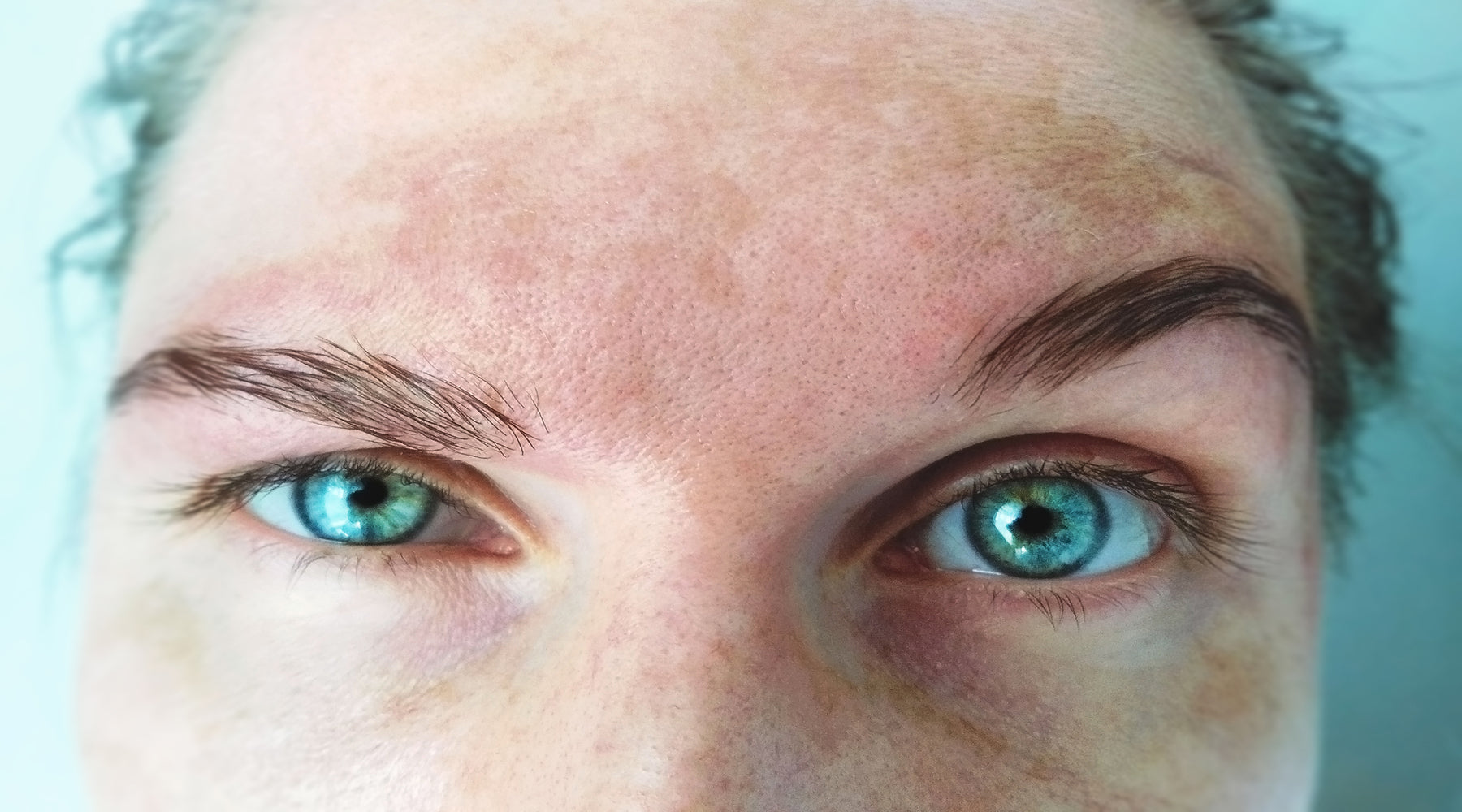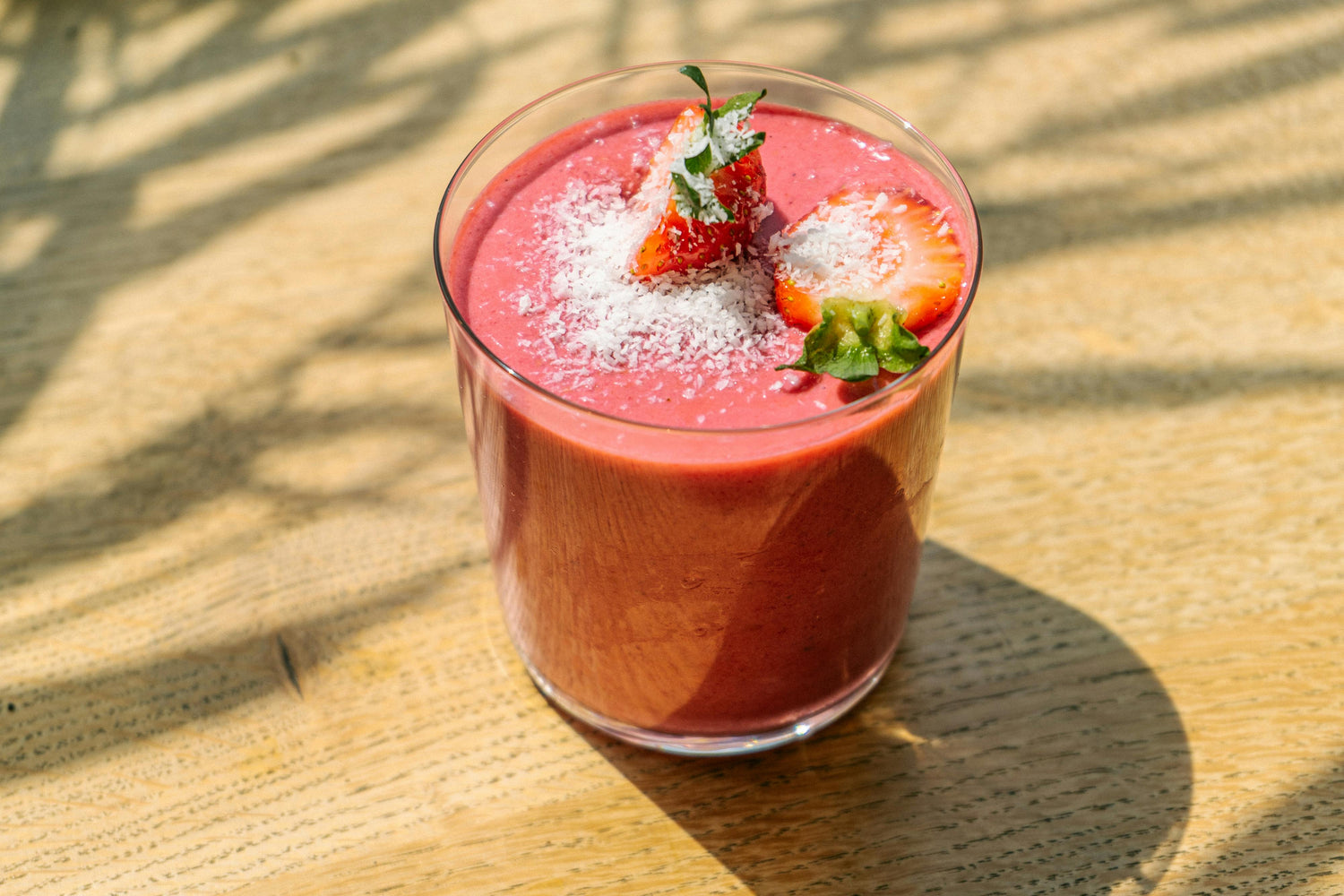
Melasma vs. Sun Spots: What’s the Difference?
Although you may simply refer to them all as annoying, the different types of spots, bumps, blotches and colors on your face all have different names. Two of the ones we see most commonly, especially as we age, are melasma and sun spots.
If you’re curious about these unwelcome visitors (and how to get rid of them), keep reading. We’re sharing all of the details below.
What Is Melasma?
Melasma sounds like a trendy name for the next celebrity offspring, but the reality is less glamorous. In truth, it’s a (very common!) skin issue that manifests as dark patches on your skin.
Primarily present in women, melasma can occur anytime, including when you’re pregnant. If you do develop melasma while you’re pregnant, it’s referred to as chloasma, or sometimes, “the mask of pregnancy.”
And like any good mask, melasma is symmetrical, meaning it (usually) looks the same on both sides of your face. It’s common to get it on your chin, forehead, cheeks, or even your nose. You might also find some melasma on your neck and arms.
Why Has Melasma Made a Home on My Face?
If you recently woke up looking like Zorro, you may be wondering what gives. You can (and should) check with your dermatologist about what might have caused your splotches, but they may not be able to give you a solid answer.
That’s right: we’ve put a man on the moon, but we still don’t know exactly what causes melasma. Science has some good guesses though. For one thing, sun exposure and skin are never a good mix; we know that UV light can contribute to melasma.
If you’re really stressed out, there’s some evidence that that can contribute to melasma, and so too can thyroid issues. If you’re on birth control or another form of hormone therapy, that can be a factor. And like we’ve mentioned, it’s common when you’re pregnant.
It’s also known that people with darker skin tend to have more issues with melasma than people with lighter skin.
Even if you’re pretty sure what you’re dealing with is a classic case of melasma, we still recommend checking with your doctor. They can rule out any dangerous skin conditions and help you move forward with a treatment plan.

What Are Sun Spots?
Sun spots are a type of hyperpigmentation--darkened patches of skin--caused by the sun. When your pretty face is exposed to the sun without adequate protection, the sun takes the opportunity to dial up your production of melanin: the pigment that gives your skin color.
Your skin produces melanin in response to the sun because melanin can act as a natural “sunscreen.” Of course, it’s not a substitute for real sunscreen, and when you get too much sun, the melanin goes into overdrive, leading to hyperpigmentation.
Most of the time, hyperpigmentation is irritating, but not dangerous. However, it’s always a good idea to get it checked by your doctor so they can rule out anything more serious.
How Are Melasma and Sun Spots Different?
Melasma and sun spots can be hard to differentiate. Both manifest as dark patches of skin and may lead to expletives when looking in the mirror. Both are also caused or aggravated by sun exposure.
However, melasma tends to be symmetrical in its appearance while sun spots aren’t necessarily. Moreover, melasma seems to have a biological cause (namely hormones), while sun spots show up to the party any time there’s a little too much sun.
Both are relatively harmless but deserve a quick check from your derm just in case.
How to Treat Melasma and Sun Spots
Although melasma and sun spots are different, they can often be treated in some of the same ways:
First and foremost, wear sunscreen! Doing so will not only prevent future spots and splotches, but help stop the existing ones from getting worse.
If you do end up with some melasma or sun spots (which most of us will, don’t beat yourself up!), there are ways to reduce their appearance. Like most skincare issues, the solutions for sun spots and melasma run the gamut from simple home solutions to more intense and invasive in-office procedures.
Because melasma and sun spots are typically not dangerous (and therefore don’t warrant immediate removal), we recommend trying at home remedies before moving on to more extreme and costly procedures with your dermatologist.

The Magic of Vitamin C for Melasma and Sun Spots
For targeting melasma and sun spots at home, nothing beats vitamin C. This miracle vitamin not only gives you a luminous glow, but it actually reduces the amount of pigmentation in your skin, helping to fade those pesky dark spots.
But vitamin C doesn’t stop there. It also combats damage from free radicals, which can help prevent you from getting hyperpigmentation in the first place. And it’s anti-inflammatory, which means you can knock out any residual acne while you’re targeting those dark spots.
However, it’s important to choose the correct vitamin C serum. Many C serums use a cheap form of Vitamin C called ascorbic acid, which isn’t the most effective at fading sun spots and melasma.
At Wild Ice Botanicals, we use a form of pure, lipid-soluble vitamin C called Ascorbyl Tetraisopalmitate in our Cryo-C serum. This type of vitamin C penetrates deeper than ascorbic acid, so it can fade your dark marks more effectively. It’s also safer for sensitive skin.
We combine that with protective date seed extract and antioxidant-rich sea buckthorn to help you get fewer dark marks in the first place. And as a (big) bonus, it helps your skin glow.
And just like all of Wild Ice’s products, Cryo-C is made with cold-kept ingredients. It’s refrigerated until it ships to you, maintaining the potency of the ingredients so you get the best results for your skin.
So if you’re experiencing some melasma or sun spots on your skin, know this: you’re beautiful no matter what! But if you’d like to fade those marks, vitamin C is one of the best ways to do it.

